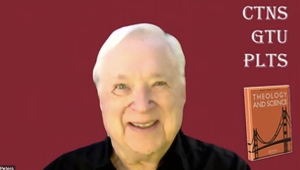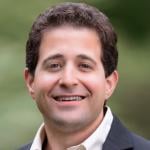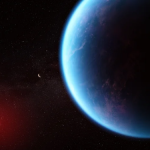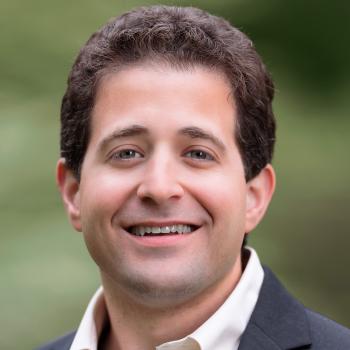Gödel’s Afterlife Proof
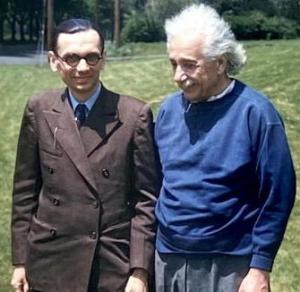
To believe in life beyond death is to be fooled by a fairy tale. If you are a materialist, that is. But what if you are not a materialist? What if you are a rationalist? What if reason and logic prove it? Would you then believe it?
70% of Americans believe in an afterlife, according to Pew/New York Times. But, is this belief reasonable? Provable? Yes, if you are Kurt Gödel.
Kurt Gödel’s Afterlife Proof ranks with the validity of 2+2=4 or the ontological proof for God’s existence. Now, just how did the 20th-century mathematical whiz kid argue that you and I will experience a fulfilling life beyond death?
Belief in the Afterlife is Rational
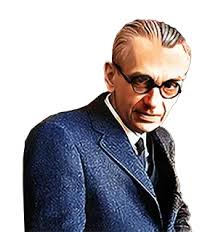
Kurt Friedrich Gödel (1906-1978) gave the world of mathematics the Incompleteness Theorem in 1931. Born in Brünn, now Brno in the Czech Republic, the young genius migrated to the Unites States in 1940 and retired in 1976 after a distinguished career as a professor of math and philosophy at Princeton. At Princeton, he became a daily walking and conversation partner with Albert Einstein.
During the post-World War II years, Gödel carried on a tender trans-Atlantic correspondence with his beloved mother, Marianne. In this exchange of letters, we find Gödel’s afterlife proof.
What we might call Gödel’s major premise is that the world is both rational and, thereby, beautiful. By ‘world’ here we do not mean only our perception of it, only our immanent experience of it. Rather, the world is that itself which gives rise to immanent experience. The world is perfect, beautiful, and ordered so that we can rationally understand it.
What we might call Gödel’s second premise is that our experience with the world is meaningful. The human story is meaningful because the world itself is already meaningful. With these two premises in mind, watch how Gödel’s afterlife proof develops in a letter dated July 23, 1961.
If the world is rationally organized and has meaning, then it [the afterlife] must be the case. For what sort of meaning would it have to bring about a being (the human being) with such a wide field of possibilities for personal development and relationships to others, only then to let him achieve not even 1/1,000th of it?
To let a human person die and fall into forgottenness would be like laying the foundation for a house and then walking away without finishing its construction. A world that is both rational and beautiful would not let such a thing happen. Therefore, we will enjoy a Wiedersehen – seeing our loved ones in the afterlife – to round out the full meaning of human existence. Alexander Englert at Princeton’s Institute for Advanced Study captures Gödel’s argument in a nutshell.
“Assuming that the world is rationally organised, human life – as embedded in the world – ought to possess the same rational structure. We have grounds for assuming that the world is rationally organised. Yet human life is irrationally structured. It is constituted by a great potential but it never fully expresses this potential in a lifetime. Hence, each of us must realise our full potential in a future world. Reason demands it.”
Slam dunk proof, eh!
Reason Demands it. Scripture Testifies to it.
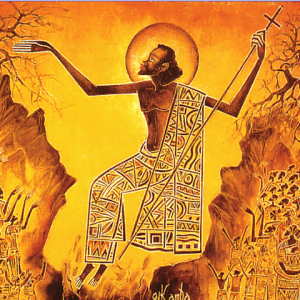
Gödel’s afterlife proof by reason is complemented by St. Paul’s analogy that compares our death followed by resurrection with the growth of a seed into a flower.
“So it is with the resurrection of the dead. What is sown is perishable [corrupt, φθορᾶ], and what is raised is imperishable [incorrupt, ἀφθαρσία]. It is sown in dishonor [ἀτιµία], it is raised in glory [δόξῃ]. It is sown in weakness [ἀσθενία], it is raised in power [δυνάµει]. It is sown a physical body [σῶµα ψυχικόν], it is raised a spiritual body [σῶµα πνευµατικόν]” (1 Cor. 15:42-44).
If fulfillment is necessary for reality to be rational and meaningful, and if we die unfulfilled, then it follows that we will be raised so that this fulfillment can be accomplished.
The Expanding Context of Meaning
Might a theologian also tender something like Gödel’s afterlife proof? Yes. I think Wolfhart Pannenberg (1928-2014) does something quite similar.
I label Pannenberg’s argument the expanding context of meaning. Based on an analogy to linguistic meaning, Pannenberg’s argument goes like this. Any letter within our alphabet, all by itself, is a meaningless cipher. But we can see how the letter in the context of a word contributes to the word’s meaning.
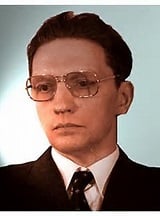
Even so, we do not know the precise meaning of the word until we interpret it within its sentence. Nor do we know the meaning of the sentence apart from its context within the paragraph. Nor the meaning of the paragraph apart from its context within the book. Nor the books’ meaning apart from its genre. Nor the genre apart from the history of its linguistic context. And, finally, the meaning of all of the above is determined by the widest context we can conceive of, namely, the whole history of reality. And when we think about the whole of reality, we are ready to take a small step to invoke God and God’s future redemption of the world. Did you follow that?
Instead of words in context, Pannenberg puts human events and experiences in the expanding context of historical meaning.
“Every individual experience has its meaning only in connection with life as a whole. This is true for the individual person as well as for a people or the human race. A meaningful whole can only be seen in retrospect, however, and thus always in a merely provisional way because history is never already finished….The fore-conception of a final future which alone yields the true meaning of all individual events must therefore be, on the one hand, something that points beyond death of the individual, and on the other hand, something that embraces the totality of the human race, indeed, of all reality” (Pannenberg, Basic Questions in Theology, 2 Volumes 1970-1971, 2:61-62).
For both faith and reason, it makes good sense to look forward to God’s raising us from the dead at the completion of history when the future whole will provide the final context that retroactively determines the meaning of your and my present life.
Did you follow that?
Gödel’s Afterlife Proof and Easter Faith
If you assume that reason and faith are at odds with one another, note that both the mathematician and the theologian connect them on the question of the afterlife (Russell 2002). For your and my life to find fulfillment, it will require resurrection from the dead in the context of God’s consummation of creation’s whole history. Reason says this makes sense. Faith says this makes sense (Peters 2006).
Jesus’ Easter resurrection becomes for us God’s promise that all this makes a lot of sense. Jesus’ Easter Resurrection is a Prolepsis of Our Resurrection.
ST 4129 Afterlife 19. Gödel’s Afterlife Proof
ST 4126 Afterlife 16. Afterlife Resources

For Patheos, Ted Peters posts articles and notices in the field of Public Theology. He is a Lutheran pastor and emeritus professor at the Graduate Theological Union. He co-edits the journal, Theology and Science, with Robert John Russell on behalf of the Center for Theology and the Natural Sciences, in Berkeley, California, USA. His single-volume systematic theology, God—The World’s Future, is now in the 3rd edition. He has also authored God as Trinity plus Sin: Radical Evil in Soul and Society as well as Sin Boldly: Justifying Faith for Fragile and Broken Souls. See his website: TedsTimelyTake.com.
Along with Michael Welker and Robert John Russell, Ted has co-edited Resurrection: Theological and Scientific Assessments (Eerdmans 2002)
References

Pannenberg, Wolfhart. 1970-1971. Basic Questions in Theology, 2 Volumes. Minneapolis: Fortress.
Peters, Ted. 2006. “The Future of Resurrection.” In The Resurrection: John Dominic Crossan and N.T. Wright in Dialogue, by ed Robert Steward, 149-170. Minneapolis: Fortress.
Russell, Robert John. 2002. “Bodily Resurrection, Eschatology, and Scientific Cosmology.” In Resurrection: Theological and Scientific Assessments, by Robert John Russell, and Michael Welker, eds Ted Peters, 3-30. Grand Rapids MI: Wm. B. Eerdmans.



